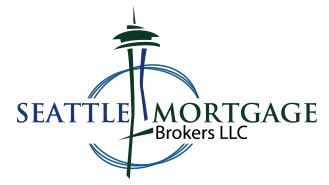We're In A Buyers Market Lower mortgage rates haven’t caused an uptick in demand just…
Finances – Savings Methods
Since way back when, there’s been a way to save and store your belongings and riches.
Bank Saving
Although using a traditional bank might seem old-school or too conventional, there are certain benefits of banking with a financial institution that has brick-and-mortar branches. Knowing some of the banking benefits of using a traditional institution can help you decide if it’s a good solution for keeping and handling your money:
Pros:
More Options – Whether you want a personal savings or checking account, trust fund, certificate of deposit, Roth IRA, or business checking account, most major financial institutions can provide all these services in one place. Many traditional banks offer wealth management and investment services, too.
Convenience – leading national banks tend to have brick-and-mortar locations and ATMs – which are free to customers – all over the country.
Best of Both Worlds – Many banks offer customers the flexibility of being able to walk into a branch to deposit cash or to transfer money via a smartphone. With online banks, you only have the electronic transfer option.
Cash Deposits – Despite all the progress that tech companies have made, the industry still has to contend with a traditional form of currency: cash. For banking customers who deal with cash frequently, a traditional bank is an attractive and convenient option.
Cons:
Banks can offer critical conveniences but are not without their flaws. To help you decide if a traditional bank is the right solution for your financial needs, review some of the drawbacks to banking at a larger institution:
Low or No Interest Rates – Brick-and-mortar banks are notorious for their lower interest rates on savings accounts, compared with online banks. In fact, in a recent survey, many of the best savings accounts were with online banks.
Wide Range of Fees – When you think of a traditional bank, you might also think of bank fees. Bank of America, for example, charges a $35 nonsufficient funds fee, when a credit union typically charges just $25 for an NSF fee.
Home Saving:
Although saving money at home in a piggy bank or under the mattress may sound like an old-fashioned idea, the practice is not uncommon. While saving at home eliminates the possibility of earning interest, it can offer certain advantages for some people.
Peace of Mind – For some people, saving money at home can provide peace of mind. They know where their money is at all times, and they can easily monitor how much money they have at present. Some also do not trust large institutions such as banks or credit unions and believe they may mishandle their funds. People with little financial savvy may not fully understand how financial institutions operate, so they feel more comfortable keeping their money at home.
Convenience – For some, getting to a bank to make deposits is an inconvenience. For these people, it may be easier to simply save their money at home instead of driving a number of miles to a bank. People who don’t own vehicles or have difficulty getting around due to health issues may also find keeping money at home more convenient.
Avoiding Fees – Bank accounts often charge fees, some of which may go unnoticed by consumers who do not monitor their accounts closely. Some banks charge a monthly fee simply for maintaining an account or assess a fee if a balance falls below a specified minimum level. Some consumers may feel that the fees make the minimal amount of interest earned by many savings accounts relatively meaningless, so opening an account is not worthwhile.
Security – Banks are known for safety, as the Federal Deposit Insurance Corporation insures accounts with up to $250,000. However, consumers who access their accounts online could be exposed to identity theft by unscrupulous Internet hackers. Saving money at home eliminates this risk, although the risk of theft by burglars or having the money destroyed by fire or natural disaster still exists. These risks can be minimized by keeping the money in a secure location such as a safe.
Working with a broker like Steve Gilbert will help you achieve your goal of saving for a new home. Give a call to Seattle Mortgage Brokers at 206-992-5635 and see how we can help you get there.
*This article does not represent legal interpretation or advice. This is not a commitment to make a loan. Loans are subject to borrower qualifications, including income, property evaluation, sufficient equity in the home to meet LTV requirements, and final credit approval. Approvals are subject to underwriting guidelines, interest rates, and program guidelines, and are subject to change without notice based on applicant’s eligibility and market conditions. Refinancing an existing loan may result in total finance charges being higher over life of loan. Reduction in payments may reflect longer loan term. Terms of the loan may be subject to payment of points and fees by the applicant. NMLS: LO# 305371 MB# 761615

